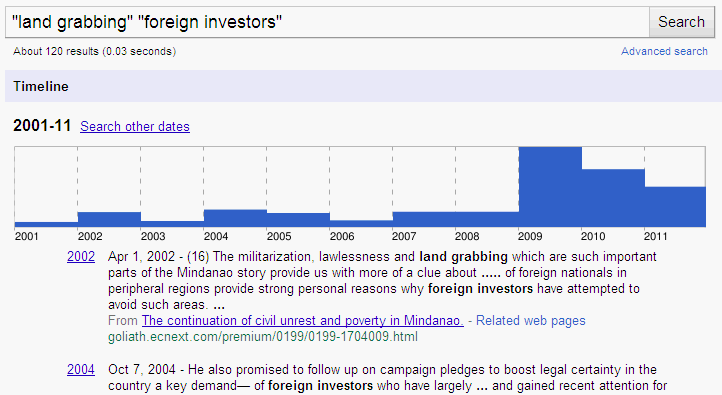
“Whether viewed as ‘land grabs’ or as agricultural investment for development, large-scale land deals by investors in developing countries are generating considerable attention. However, investors, policymakers, officials, and other key stakeholders have paid little attention to a dimension of these deals essential to truly understanding their impact: gender.” (The Gender Implications of Large-scale Land Deals, IFPRI, April 2011).
Two years after the publication of “‘Land Grabbing’ by Foreign Investors in Developing Countries,” the International Food Policy Research Institute (IFPRI) is again setting the agenda. The idea that we should consider gender issues when evaluating large-scale land deals shows how the ‘land grabbing’ debate has matured since it started in 2009, when rich investors from powerful countries were pitted against poor farmers in developing countries.
Of course, there are still those who condemn greedy land grabbers abusing their power to deprive poor Africans of their land, on the one side, and those who hail benevolent investors lending their money to develop backward agriculture in the ‘south’ on the other. But we can also observe many shades of gray in a debate which seems to have revived in spring 2011.

Two years into the ‘land grabbing’ phenomenon, here are some resources on the issue.
